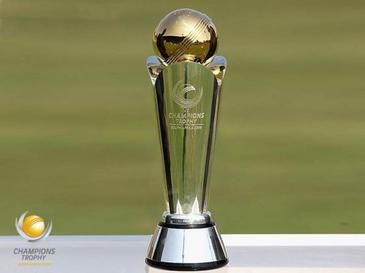ICC Cricket World Cup: A Billion-Dollar Spectacle of Passion and Prestige

The ICC Cricket World Cup is more than just a cricket tournament; it is a global festival that unites nations and fans across borders. Held every four years, the event showcases the best teams and players, while creating unforgettable moments of sportsmanship, drama, and sheer excitement. Beyond the on-field action, the tournament is also a financial juggernaut, generating billions in revenue and captivating millions of viewers worldwide.
A Legacy of Excellence
First held in 1975 in England, the ICC World Cup has grown exponentially in scale and significance. Over the years, it has witnessed cricketing legends like Kapil Dev, Imran Khan, Ricky Ponting, and MS Dhoni lift the coveted trophy. From underdog stories to nail-biting finishes, the World Cup has always delivered unforgettable memories, cementing its place as the pinnacle of cricket.
Financial Impact and Global Reach
The ICC Cricket World Cup is a massive commercial enterprise. Its budget often exceeds hundreds of millions of dollars, with the 2023 edition reportedly surpassing the $500 million mark. A significant chunk of this comes from broadcasting rights, sponsorships, and ticket sales. The tournament’s global broadcast reaches over 200 countries, attracting billions of viewers and making it one of the most-watched sporting events in the world.
Sponsorship deals are another vital revenue stream. Multinational corporations, from beverage giants to tech companies, compete to associate their brand with the World Cup. For example, in the 2019 edition, the ICC struck lucrative sponsorship deals with companies like Oppo, MRF, and Coca-Cola.
Host Nation Benefits
Hosting the World Cup is a prestigious yet costly endeavor. Countries invest heavily in upgrading stadiums, improving infrastructure, and promoting tourism. In return, they benefit from a significant boost to their economy. Tourism surges as fans from around the globe flock to the host nation, filling hotels, restaurants, and local attractions. For example, the 2015 World Cup co-hosted by Australia and New Zealand generated over $1 billion in economic benefits.
Memorable Moments That Define the ICC World Cup
The tournament’s legacy is defined by iconic moments that have left fans speechless. Who can forget India’s historic win in 1983, Australia’s dominance in the 2000s, or England’s dramatic boundary-count victory in the 2019 final? These moments are not just about cricket—they are stories of perseverance, teamwork, and triumph under pressure.
Challenges and the Road Ahead
While the ICC Cricket World Cup continues to thrive, it is not without challenges. The rising costs of hosting the tournament and the pressure to deliver flawless events put immense strain on the host nations. Additionally, ensuring competitive balance between teams remains a concern, as cricket is still dominated by a few elite nations.
Looking ahead, the ICC is exploring ways to make the tournament more inclusive and exciting. Expanding the number of teams, incorporating new formats, and leveraging digital platforms for fan engagement are some of the steps being considered to ensure the World Cup remains relevant in the changing landscape of sports.
The ICC Cricket World Cup is not just a tournament—it is a celebration of cricket’s rich history, its global appeal, and its ability to bring people together. As the sport continues to evolve, the World Cup stands as a symbol of passion, pride, and prestige, uniting fans and players in their shared love for the game.